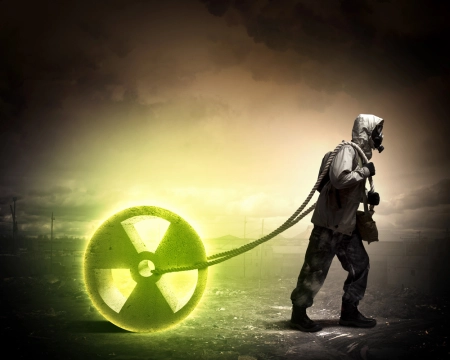
The use of nuclear energy implies certain disadvantages that must be taken into account.
The primary use of nuclear energy is the generation of electricity. However, nuclear technology is also used in the military, medical or environmental fields, among others.
The primary use of nuclear energy is power generation. The construction of nuclear power plants makes it possible to generate electricity without emitting carbon dioxide and other greenhouse gases.
This type of energy has pros and cons. The main drawbacks of atomic energy are:
-
Risk of possible nuclear accidents.
-
Difficulty managing nuclear waste.
-
Limited lifespan of nuclear reactors.
-
External dependency for obtaining nuclear fuel or engineering.
1.- Possibility of nuclear accidents
One of the main disadvantages of nuclear power is keeping this technology in a safe environment. Despite significant advances in safety, there is always the possibility of a nuclear accident or radioactive leak.
The safety systems have improved significantly, but there is always the possibility of any human error. In the event of an unforeseen event or the management of a nuclear accident, it cannot be guaranteed that the decisions made by those responsible are always the most appropriate. We have two good examples in Chernobyl, Fukushima, and Three Mile Island in the United States.
Nowadays, nuclear production reactors generate nuclear fission reactions. In this type of reactors, fission reactions are caused in a chain so that if the control systems fail, the reactor generates more and more reactions, with which the situation tends to worsen.
Nuclear fusion is a technology that also allows obtaining energy and would solve this problem. Currently, work is being done on a nuclear fusion reactor for research on nuclear fusion technology.
In another sense, but also related to safety, it is the possibility that terrorist groups attack nuclear reactors. Nuclear power plants are targets for terrorist organizations.
2.- Generation of radioactive waste
The nuclear industry (nuclear plants, hospitals, etc.) generates nuclear waste that emits radiation. Nuclear waste takes many years to lose its radioactivity and danger. Therefore, they must be treated in a particular way in centers for the management of these resources.
In these centers, nuclear waste is confined for years, waiting for its radioactivity to be reduced. One of the problems with this system is that a contaminated area remains practically forever, the management of which will have to be inherited for generations.
3.- Limitation of the useful life of nuclear reactors
Nuclear power reactors, once built, have an expiration date. After this date, they must be dismantled. Precisely because nuclear power plants have a limited life.
The initial cost to build up a nuclear power plant is very high and must be recovered in a short time so that this raises the price of the electrical energy generated.
The energy generated is cheap compared to the costs of nuclear fuel. However, to the price of the kilowatt-hour generated, we must consider the initial cost of the plant.
4.- Dependence on external mining resources and foreign engineering
A disadvantage concerning conventional thermal power plants that produce energy through fossil fuels is the supply of uranium and engineering. However, our uranium reserves are estimated to last another 80 years.
Uranium fuel has advantages and disadvantages: you can get enormous amounts of energy, but only a few countries have uranium mines, and not all countries have uranium enrichment plants. In these cases, the supply of nuclear fuel depends on other countries.
On the other hand, not all countries have the technology and have enough knowledge to build nuclear power plants.
In this case, the sum, so they have to contract both abroad.
5.- Military use and development of nuclear bombs
Nuclear energy is also used in the military field. Several countries have the technology to develop atomic bombs with devastating destructive power.
The first use given to nuclear energy was to build two atomic bombs that were dropped on Hiroshima and Nagasaki (Japan) during World War II. It was the first and last time that nuclear energy was used in a military attack.
Although several countries signed the Nuclear Non-Proliferation Treaty, the risk that nuclear weapons will be used again in the future will always exist. This treaty aimed to encourage the use of atomic energy for energy production and other civil services.
6.- It is not a renewable energy
Although it does not use fossil fuels such as coal or natural gas, nuclear power stations need Uranium. Uranium ore is extracted from the soil, but it does not regenerate itself. For this reason, it is not considered renewable energy like solar and wind power are.